Main Whoever vs. Whomever Takeaways:
- Whoever is a subject pronoun. This means that it can replace pronouns like I, we, she, he, and they that are often the subject of a sentence.
- Whomever is an object pronoun. This means that it can replace pronouns like me, us, her, him, and them that are often the object of a sentence’s preposition or verb.
- Here’s a quick trick to remember the difference: If you’re referring to the pronoun him/her, you should use whomever. However, if he/she works better in the sentence, you should opt for whoever.
- You can begin a sentence using whomever if the object pronoun naturally falls at the beginning of the sentence.
- Whomsoever is a more formal word for whomever.
- Whosoever is a more formal word for whoever.
- Some modern grammarians believe whom is a dying pronoun, joining words like thee, thy, and thine.
If you find yourself changing sentences around to avoid using these words, you aren’t alone. But there is another way. Knowing whether to use whoever or whomever can be easy once you know what makes them unique. This article will answer all of your whoever vs. whomever questions and give you a few simple tricks to remember the difference between these pronouns. And, we’ll show you how to use each with easy examples.
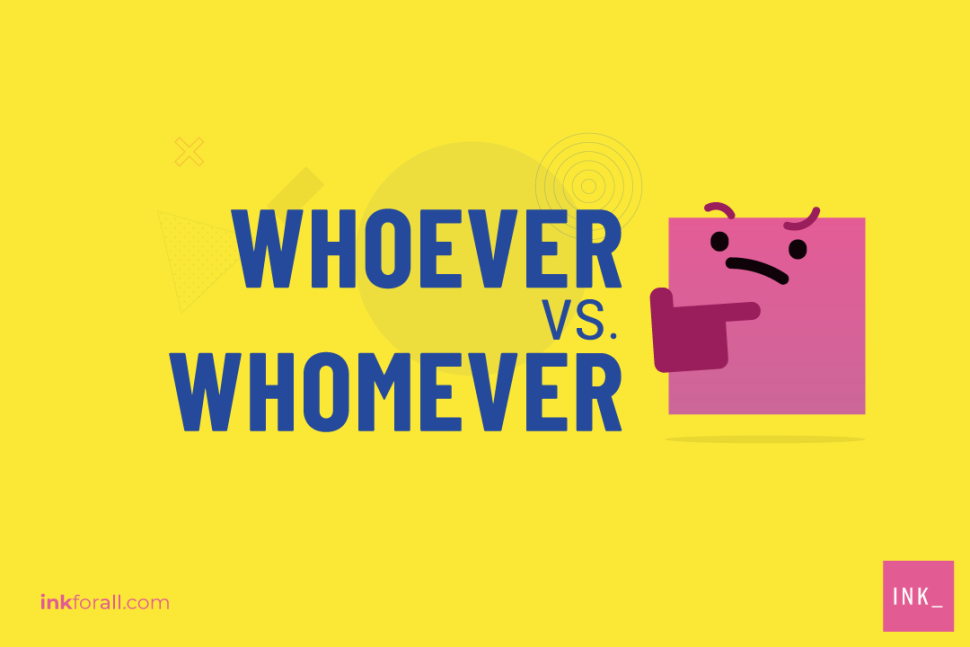

Many people believe that whomever is nothing more than a more formal version of whoever. But the truth is, they’re unique words with unique functions. So, what’s a writer to do if they’re deciding between whomever or whoever?
Which is Correct: Whoever or Whomever?
Here is the easiest way know if you should use whoever or whomever: associate the ‘m’ in whomever with the ‘m’ in him. Replace the word with him. Does the sentence still make sense? If so, then whomever is the correct pronoun. If not, then you should use whoever instead. This trick works because whoever is a subject pronoun like he/she/they. Conversely, whomever is an object pronoun like him/her/them.
Similarly, you can use the same trick to remember the difference between who and whom. This is because these pronouns are the roots of whoever and whomever.


What is the Him Trick?
The Him Trick is the quickest and easiest way to remember the difference between whoever and whoever. Just link the ‘m’ in whomever to the ‘m’ in him. Replace the entire dependent clause beginning with whoever/whomever with him (The smoothie goes to whomever ordered it = the smoothie goes to him). Does the sentence still make sense? Is it still grammatically correct? If yes, then you know that whomever is the correct word to use. If no, then whoever is most likely the word you want. You can also use other object pronouns like her/them.
The reason this trick works is because whomever is an object pronoun like him/her/them. Conversely, whoever is a subject pronoun like he/her/they.
Here’s how the sentences look like following the Him Trick:
Can you Start a Sentence With Whomever?
You can start a sentence with whomever, but it rarely happens. Use whomever at the beginning of a sentence when the object pronoun—the recipient of the action—falls at the beginning of a sentence. In this case, it’s grammatically correct to start a sentence with whomever. An example of one of these rare cases is: Whomeveryou choose for the role, it’s fine with me.
When Should you use Whomever in a Sentence?
You should use whomever in a sentence whenever you can rewrite the sentence using him. For example, the sentence “Please send the file to whomever requested it” becomes “Please five the file to him.” This is because whomever is an object pronoun, meaning that it refers to the verb or preposition of a sentence and not the subject. In this example, the subject is the file while the object is the person who requested the file. Since the verb send and the preposition to refer to the person that made the request, whomever is the correct object pronoun to use. As you can see, you should use an object pronoun to replace the entire dependent clause beginning with whomever.


Examples of Whomever in a Sentence
Here are examples of how to use whomever in a sentence:
- Whomserves as an object pronoun because it receives the action.
- As such, whom takes the place of other object pronouns like me, us, her, him, and them.
- Since it’s also an object pronoun, the same is true for whomever.
Examples of Whoever in a Sentence
Here are examples of how to use whoever in a sentence:
- Who functions as a subject pronoun because it refers to the person executing the action of the sentence.
- As such, who takes the place of other subject pronouns like I, we, she, he, and they.
- Since it’s also a subject pronoun, the same holds true for whoever.
Is it to Whoever or to Whomever?
The correct phrase is towhomever, not to whomever. Like whom, whomever is an object pronoun. This means that it can replace the object of the verb or preposition in a sentence. Since the word comes after the preposition to in this phrase, whomever is the correct object pronoun to use. Confirm this by replacing the word with a different object pronoun like him/her/them. If the sentence is still grammatically correct and makes sense, then whomever is correct. If not, then you should probably use whoever.


Is it Whoever or Whomever It May Concern?
The correct valediction is To Whom It May Concern. The reason we use whom instead of whomever orwhoever here is because the word it is actually the subject of the sentence. The person concerned is actually the object. Since whom and whomever are object pronouns, whom is the correct word here. Another is clue that whom is correct is that it follows a preposition. Because prepositions are direction words, the to gives you a hint that whom is an object of something else. Therefore, you need to use an object pronoun.
What is the Difference Between Whoever and Whosoever?
The only difference between whoever and whosoever is whosoever is more formal than whoever. Feel free to use them interchangeably. However, whosoever isn’t so common anymore, but you may see it formal writing or hear it in a formal speech.
- Whosoever = Whoever
- Whomsoever = Whomever
What is the Meaning of Whomsoever?
The meaning of whomsoever is the same as the meaning of whomever. They are interchangeable. The only difference between these two words is that whomsoever is a more formal way to say whomever. Today, whomsoever is rarely used and may seem antiquated or stuffy. However, it is grammatically correct to use as an object pronoun in very formal speech and writing.
How do I Spell Thee? Let me Count the Ways!
Common misspellings of whoever and whomever include:
- who ever
- whom ever
- who so ever
- whom so ever
It’s important to note that these are all incorrect. Since whomever and whoever are compound words, all four of the above examples should be written without spaces.
Quick Grammar Quiz to Test Your Knowledge of Whoever vs. Whomever
Whoever vs. Whomever Question #1
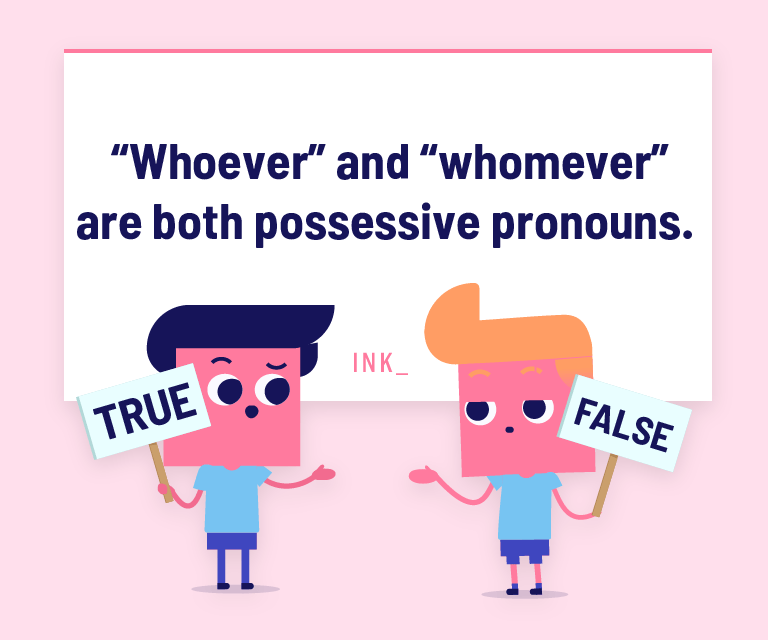

The answer is FALSE. “Whoever” and “whomever” are interrogative pronouns. They both function as words used to ask questions.
Whomever or Whoever Question #2
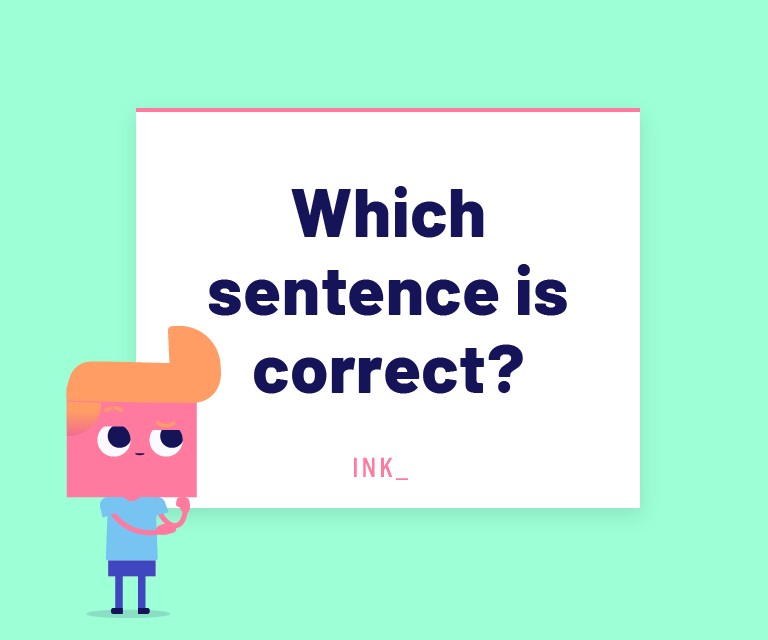

The answer is A. If you can rephrase a sentence and answer the question with “he,” then use “whoever”. Who needs it? He needs it. So “whoever” is correct here.
Who or Whom Question #3
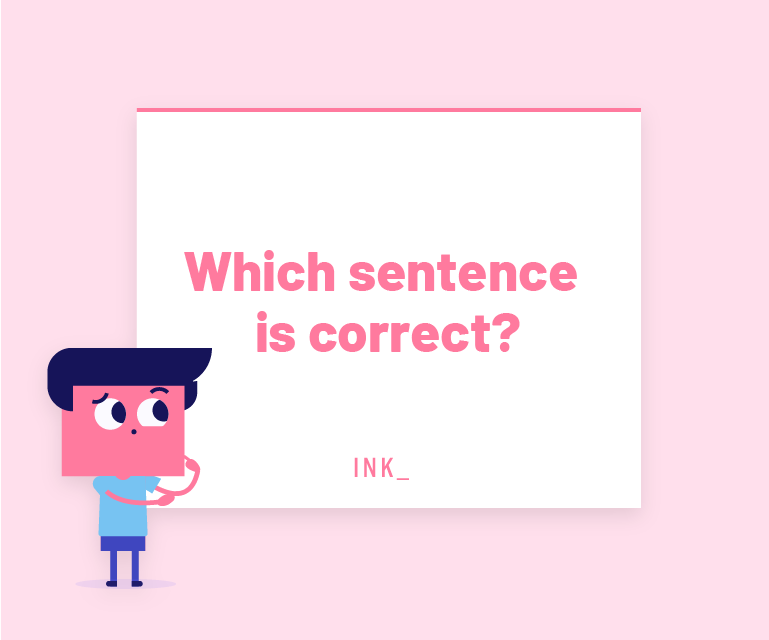

The answer is B. As the object pronoun, “whom” functions as the recipient of the action.
Whom vs. Who Question #4
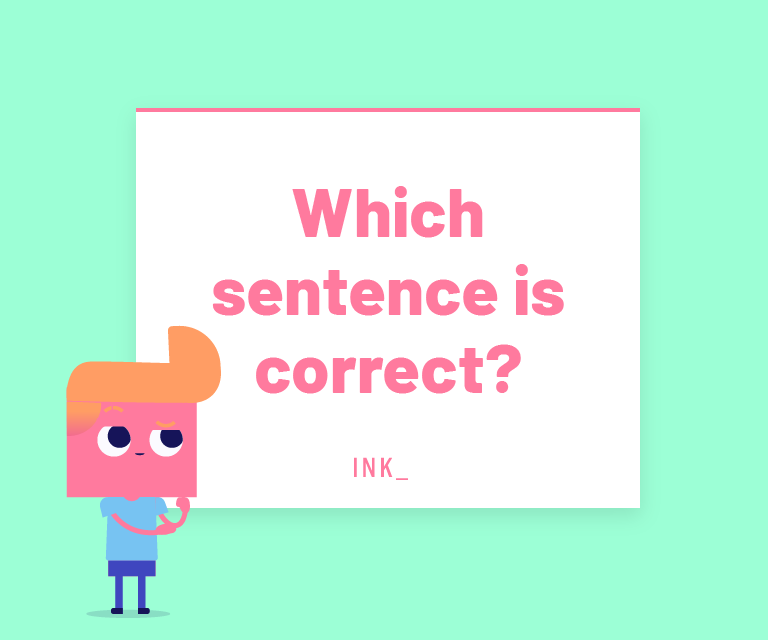

The answer is A. As the object pronoun, “whom” functions as the recipient of the action, “choose.”
Whomever Question #5
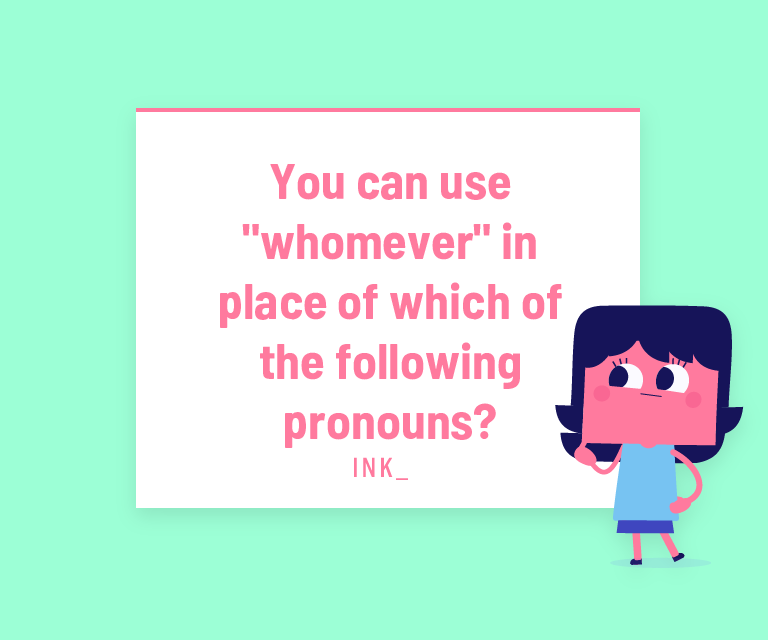

The answer is C. It's easy to remember “him” because “m” is present in both “whomever” and “him”. It is also correct to use “her” in place of “whomever.”
Whomever or Whomsoever Question #6
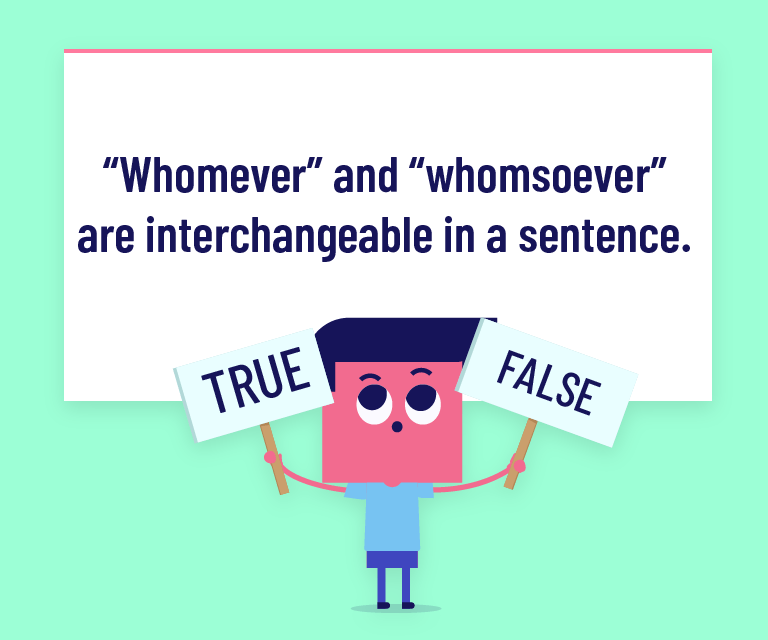

The answer is TRUE. “Whomsoever” is just a more formal version of “whomever.”

I love this
Thank you, Farika! We’re glad that you’ve enjoyed reading our post. Have a great day!